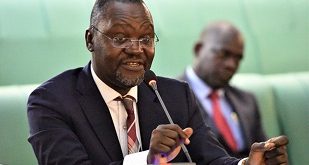
By Dani Rodrik
Economists get stuck with the charge of being narrowly ideological because they do not communicate fully
CAMBRIDGE – Early last month, a group of students staged a walkout in Harvard’s popular introductory economics course, Economics 10, taught by my colleague Greg Mankiw. Their complaint: the course propagates conservative ideology in the guise of economic science and helps perpetuate social inequality.
The students were part of a growing chorus of protest against modern economics as it is taught in the world’s leading academic institutions. Economics has always had its critics, of course, but the financial crisis and its aftermath have given them fresh ammunition, seeming to validate long-standing charges against the profession’s unrealistic assumptions, reification of markets, and disregard for social concerns.
Mankiw, for his part, found the protesting students “poorly informed.” Economics does not have an ideology, he retorted. Quoting John Maynard Keynes, he pointed out that economics is a method that helps people to think straight and reach the correct answers, with no foreordained policy conclusions.

Indeed, though you may be excused for skepticism if you have not immersed yourself in years of advanced study in economics, coursework in a typical economics doctoral program produces a bewildering variety of policy prescriptions depending on the specific context. Some of the frameworks economists use to analyze the world favor free markets, while others don’t. In fact, much economic research is devoted to understanding how government intervention can improve economic performance. And non-economic motives and socially cooperative behavior are increasingly part of what economists study.
As the late great international economist Carlos Diaz-Alejandro once put it, “by now any bright graduate student, by choosing his assumptions….carefully, can produce a consistent model yielding just about any policy recommendation he favored at the start.” And that was in the 1970’s! An apprentice economist no longer needs to be particularly bright to produce unorthodox policy conclusions.
Nevertheless, economists get stuck with the charge of being narrowly ideological, because they are their own worst enemy when it comes to applying their theories to the real world. Instead of communicating the full panoply of perspectives that their discipline offers, they display excessive confidence in particular remedies – often those that best accord with their own personal ideologies.
Consider the global financial crisis. Macroeconomics and finance did not lack the tools needed to understand how the crisis arose and unfolded. Indeed, the academic literature was chock-full of models of financial bubbles, asymmetric information, incentive distortions, self-fulfilling crises, and systemic risk. But, in the years leading up to the crisis, many economists downplayed these models’ lessons in favor of models of efficient and self-correcting markets, which, in policy terms, resulted in inadequate governmental oversight over financial markets.
In my book The Globalization Paradox, I contemplate the following thought experiment. Let a journalist call an economics professor for his view on whether free trade with country X or Y is a good idea. We can be fairly certain that the economist, like the vast majority of the profession, will be enthusiastic in his support of free trade.
Now let the reporter go undercover as a student in the professor’s advanced graduate seminar on international trade theory. Let him pose the same question: Is free trade good? I doubt that the answer will come as quickly and be as succinct this time around. In fact, the professor is likely to be stymied by the question. “What do you mean by ‘good?’” he will ask. “And good for whom?”
The professor would then launch into a long and tortured exegesis that will ultimately culminate in a heavily hedged statement: “So if the long list of conditions I have just described are satisfied, and assuming we can tax the beneficiaries to compensate the losers, freer trade has the potential to increase everyone’s well-being.” If he were in an expansive mood, the professor might add that the effect of free trade on an economy’s growth rate is not clear, either, and depends on an altogether different set of requirements.
A direct, unqualified assertion about the benefits of free trade has now been transformed into a statement adorned by all kinds of ifs and buts. Oddly, the knowledge that the professor willingly imparts with great pride to his advanced students is deemed to be inappropriate (or dangerous) for the general public.
Economics instruction at the undergraduate level suffers from the same problem. In our zeal to display the profession’s crown jewels in untarnished form – market efficiency, the invisible hand, comparative advantage – we skip over the real-world complications and nuances, well recognized as they are in the discipline. It is as if introductory physics courses assumed a world without gravity, because everything becomes so much simpler that way.
Applied appropriately and with a healthy dose of common sense, economics would have prepared us for the financial crisis and pointed us in the right direction to fix what caused it. But the economics we need is of the “seminar room” variety, not the “rule-of-thumb” kind. It is an economics that recognizes its limitations and knows that the right message depends on the context.
Downplaying the diversity of intellectual frameworks within their own discipline does not make economists better analysts of the real world. Nor does it make them more popular.
Dani Rodrik, Professor of International Political Economy at Harvard University, is the author of The Globalization Paradox: Democracy and the Future of the World Economy.
 The Independent Uganda: You get the Truth we Pay the Price
The Independent Uganda: You get the Truth we Pay the Price



